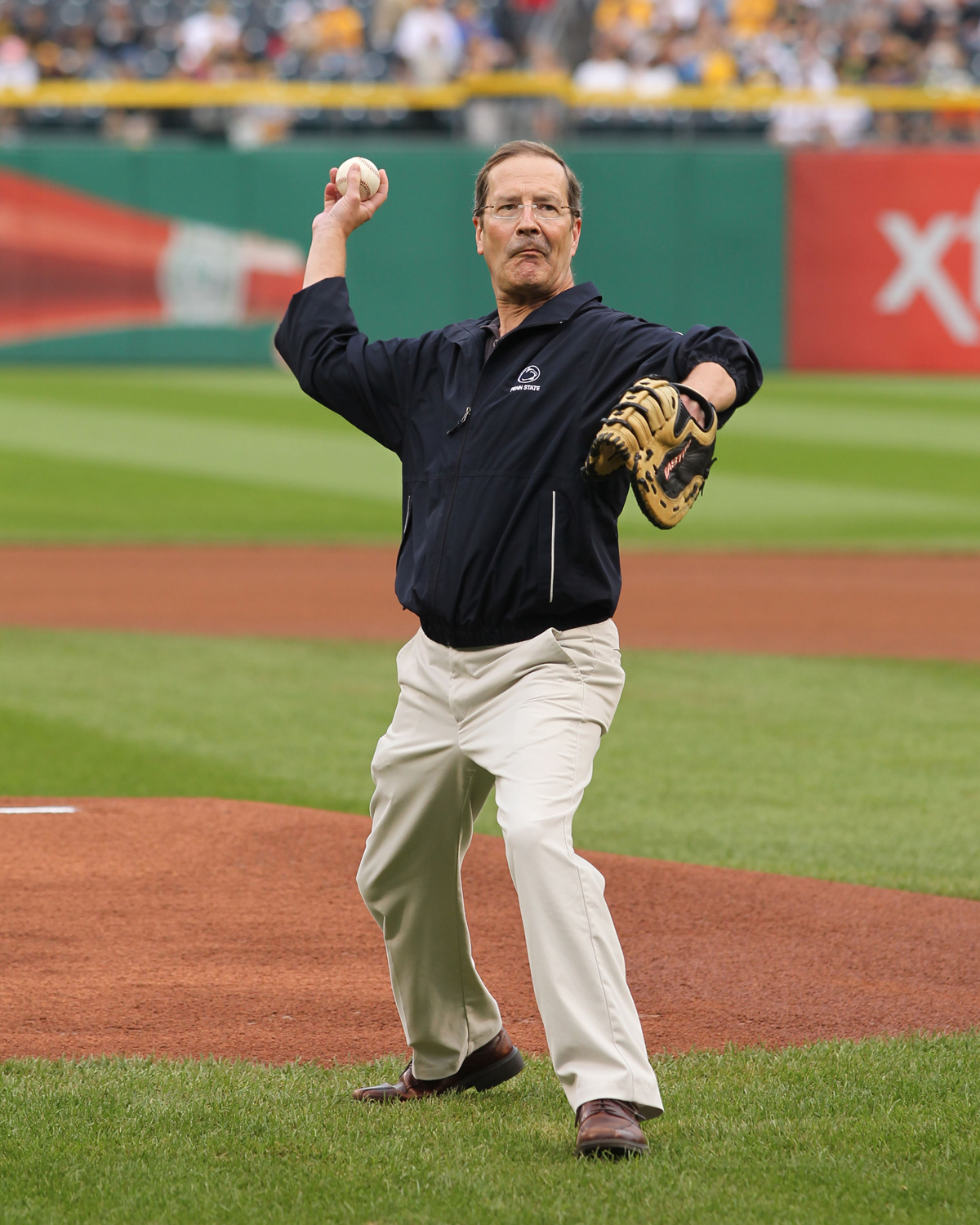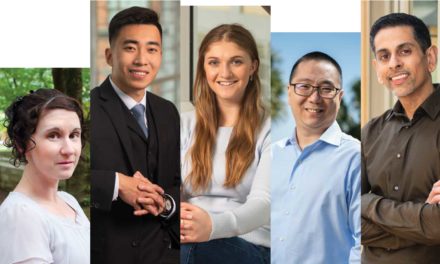Charles H. Whiteman has facilitated tremendous growth during his 12-year tenure as dean of the Penn State Smeal College of Business, much of it hailed for leading business education into the future. With his upcoming
retirement in June, he reflects on how he – and the college – arrived here.

The architect of perhaps the most prolific growth the Penn State Smeal College of Business has seen in recent history is retiring at the conclusion of June.
Charles H. Whiteman, the John and Karen Arnold Dean of Smeal, increased interest in the college amid an increasingly fluid education landscape, in part, by creating opportunities for non-business majors with the introduction of the Smeal College of Business Fundamentals Certificate in 2015.
He also helped advance experiential learning at the college through the creation of the Saxbys experiential learning café, which opened in the Business Building in August 2018, and the Nittany Lion Consulting Group, which launched in fall 2020.
“Not every dean of every business school has high academic values, but he absolutely does. He tried to infuse his initiatives with them, and I greatly appreciated that.”

And then there’s the professional graduate business portfolio, which Whiteman has developed into one of the largest and most robust of its kind in the country since his arrival at University Park in July 2012. As part of a strategy placing a greater emphasis on lifelong learning — and, in turn, the previously underserved working professionals demographic — Smeal’s professional graduate programs have grown over the last decade to encompass seven one-year residential specialty master’s degrees, nine online master’s degrees, an executive doctorate in business administration degree, and 15 online graduate certificates. Graduate enrollment over that period has increased from around 300 students to about 2,300.
“Chuck has done a remarkable job the last three to five years pivoting Smeal toward the direction higher education is going,” says Karen Quintos, a member of the Penn State Board of Trustees and a former chair of the Smeal Board of Visitors. “He’s adding new programs and certifications, things that lots of other colleges at Penn State and business schools throughout the Big Ten are just starting to consider.”
Demand across the continuum of new offerings has been immediate. Last September, 24 students composed the first cohort of a new, three-year executive doctorate degree in business administration, many of them company presidents, senior executives, and organization leaders. On the other end of the graduate program spectrum, the 118 students accepted to the inaugural one-year MBA program, which also began last September, are largely in the early stages of their careers. Overall, Smeal’s total enrollments have grown each of the last five years, from approximately 7,500 students at all levels in fall 2018 to more than 11,000 in fall 2023.
“Throughout Chuck’s tenure, he’s been committed to advancing both excellence and access to business education,” says former Executive Vice President and Provost Justin Schwartz. “He is one of the country’s leaders in diversifying student populations in business education. His newest initiatives are going to bring a lot more of our commonwealth campus students into Smeal, ultimately, and into business.”
Lizabeth H. Zlatkus, who Whiteman appointed chair of the Smeal Board of Visitors soon after he became dean, says he came into his own over his first few years, lifting the college’s stature in the process.
“His growth has been palpable,” she says. “And as Chuck became more prominent within the university and beyond, he elevated Smeal to similar heights.”
“Interestingly, while I’m an economist and she’s a psychologist, our approaches to parenting were quite similar. For example, understanding the importance of incentives.”
‘To know things nobody knows’
What was clear from the onset, Zlatkus and Quintos say, was that Whiteman cared deeply about the students and faculty at Smeal. Having spent his entire adult life on a college campus, they are his people.
Donald Hambrick, an Evan Pugh University Professor and the Smeal Chaired Professor of Management, has been vocal in his opposition of some of Whiteman’s endeavors. But he says Whiteman’s academic values are “superb.”
“Not every dean of every business school has high academic values, but he absolutely does,” Hambrick says. “He tried to infuse his initiatives with them, and I greatly appreciated that.”
Prior to joining Penn State, Whiteman was the senior associate dean of the Tippie College of Business at the University of Iowa. But he is, according to several people interviewed for this article, a scholar, foremost. He holds a bachelor’s degree in economics from the University of Kansas and a doctorate in economics from the University of Minnesota. He has conducted research that has been supported by a number of grants from the National Science Foundation, published more than 70 academic papers, written two books, and served as associate editor of several economic journals.
Kimberly Cornaggia, chair of the Department of Finance and the Louis R. and Virginia A. Benzak Professor at Smeal, says it wasn’t just the extent of Whiteman’s CV that impressed her but the elite level of much of his work. He’s had multiple papers published in the American Economic Review and Econometrica, which she describes as “the highest-impact journals in the field,” a rare feat.
“Because of that background and because he knows what goes into knowledge creation, and because he values that, he has done an excellent job of recruiting and retaining faculty that are likewise focused on high-quality research,” Cornaggia says. “After all, the point here is to not just take the things that a lot of people know and teach that to people who don’t yet know it. The point here is to push back the boundary of knowledge, to know things that nobody knows, to ask questions that aren’t answered, but are answerable.”

Making a home in Happy Valley
Whiteman and his wife, Claire, have two grown children, a son who works as an electrical engineer for a farm implement manufacturer in Iowa City and a daughter who recently became a staff psychologist at the Kansas City Veterans Affairs Medical Center. They were born on the same day two years apart.
“Interestingly, while I’m an economist and she’s a psychologist,” Whiteman says of Claire, who holds a doctorate in clinical child psychology and was a lecturer in the Department of Psychology at Penn State for several years, “our approaches to parenting were quite similar. For example, understanding the importance of incentives. We agree to the letter on those kinds of issues.”
Almost all of their family resides in the Midwest — more specifically, Iowa, Minnesota, Missouri, and Kansas — a main reason why they’re planning to return to Iowa City, their home for many years before Whiteman became dean of Smeal, after his retirement this summer.
That’s not to say that Happy Valley never felt quite like home to them. Just different.
Whiteman describes them as people who love to cook and eat. And so, they quickly surveyed the restaurant scene and pledged their loyalty, first to Zola Kitchen & Wine Bar, then, more recently, Allen Street Grill and Pine Grove Hall.
Remodeling is another shared passion. By the time they move this summer, the Whitemans figure they will have renovated virtually every corner of their home.
Charles, or “Chuck,” as many call him, and Claire have been a couple for 36 years. They met, more or less, on the first day of their freshman year at Kansas and started dating the following year. But then they split, only to reunite 12 years later. By that point, Chuck had earned tenure and was just beginning to become entrenched in academia.
About 20 years ago, a senior colleague at Iowa nominated Whiteman for the prestigious honor of Fellow of the Econometric Society. He didn’t receive enough votes to be inducted, and the colleague who nominated him became disenchanted with the society over the exclusion of an even more qualified candidate he had nominated. The series of events led Whiteman to consider, perhaps for the first time, his career path.
“I could see my future, and it was going to be working with graduate students, writing papers, and going to conferences,” he says. “I was successful at all of those things, but it was going to be more of the same, and there probably wouldn’t be a next step.”
Shortly after, a new dean was named to the Tippie College of Business. It was someone Whiteman knew well. So, when Whiteman offered him five names he thought would be suitable candidates for the newly opened senior associate dean position, he was merely trying to be helpful. He couldn’t have known that during the candidates’ interviews with the dean, only Whiteman expressed a sincere desire to take on the responsibilities.
Gradually, the tide turned
Toward the end of his time at Iowa, the Tippie dean and Whiteman pitched the provost a version of a responsibility center management budgeting model where the college would keep a fraction of the new tuition it generated. He rejected it.
Early in his tenure at Smeal, Whiteman believed the model was the way forward for the college. He workshopped the idea with faculty and was surprised by the lack of interest. Eventually, he came to appreciate that it was a reaction to the prospect of increasing Smeal’s size.
Another misstep followed the next year. An early draft of Smeal’s new strategic plan included an outline to grow the college’s online presence, which would entail, in part, moving the core of the resident MBA program online.
“This did not sit well with a pretty significant faction of the faculty,” Whiteman says.
But gradually, the tide began to turn.
“I guess in kind of socializing this idea over the course of the year in which we wrote this strategic plan and then beginning to think about what this would look like going forward, we kind of realized that we could grow our enrollment not by adding physical students but by adding virtual students,” Whiteman says.
During this time, the college also restructured internal incentives so that departments would reap greater rewards for successful programs.
“Virtually overnight, department chairs started coming up with really good ideas about new programs that would meet market demand, that would more than cover expenses, that would provide them with some flexibility to do things they wanted to do in their departments, and earn quite a bit of money for the college,” Whiteman says.
Zlatkus, the former chair of the Smeal Board of Visitors, says she was perplexed initially by Whiteman’s persistence at turning discussions granular.
“But over time, what we learned is, because Chuck got into the weeds on certain issues, he broke through — I’ll call it the ‘Penn State bureaucracy’ — and got things moving,” she says.
More recently, the university allocation model was changed to increase the incentive for undergraduate enrollment expansion. Smeal, Whiteman says, is responding with a “major initiative.”
“We align our expertise and mission with the incentives we face and do our best to optimize our response,” he says.

‘He was willing to go out on a limb’
“I spent a lot of time with the Board of Visitors trying to stress that Chuck really does listen,” says Quintos, the Penn State Trustee. “It may not be obvious because he’s an introvert. But he takes everything in, chews on it for a while, and then, before you know it, what you said has turned into a set of plans, actions, and follow-ups. I tell you, that’s quite unique.”
“Many schools have advisory boards,” adds David Marcinek, the cofounder of the Smeal Finance Advisory Board and a former member of the Smeal Board of Visitors. “Sometimes deans will listen, nod, and smile and then ignore everything the board said because these advisory boards have no official governance rights. They merely serve at the pleasure of the dean, and the dean can do whatever they want with them.”
Inspired, in part, by Whiteman’s embrace of Smeal’s vast alumni network — “He really tried to build direct connectivity with the alumni base and bring them in to help make Smeal better” — Marcinek was asked to co-lead the Finance Advisory Board seven years ago. Since then, the two have worked together closely to implement many of the board’s recommendations, including adding a course on fixed income securities.
“He was willing to go out on a limb and put dollars behind our idea,” Marcinek says. “That showed us a lot. He’s been a champion of the finance curriculum. Because of his support, the finance department is stronger today than it ever has been.”
“I spent a lot of time with the Board of Visitors trying to stress that Chuck really does listen,” says Quintos, the Penn State Trustee. “It may not be obvious because he’s an introvert. But he takes everything in, chews on it for a while, and then, before you know it, what you said has turned into a set of plans, actions, and follow-ups. I tell you, that’s quite unique.”
“Many schools have advisory boards,” adds David Marcinek, the cofounder of the Smeal Finance Advisory Board and a former member of the Smeal Board of Visitors. “Sometimes deans will listen, nod, and smile and then ignore everything the board said because these advisory boards have no official governance rights. They merely serve at the pleasure of the dean, and the dean can do whatever they want with them.”
Inspired, in part, by Whiteman’s embrace of Smeal’s vast alumni network — “He really tried to build direct connectivity with the alumni base and bring them in to help make Smeal better” — Marcinek was asked to co-lead the Finance Advisory Board seven years ago. Since then, the two have worked together closely to implement many of the board’s recommendations, including adding a course on fixed income securities.
“He was willing to go out on a limb and put dollars behind our idea,” Marcinek says. “That showed us a lot. He’s been a champion of the finance curriculum. Because of his support, the finance department is stronger today than it ever has been.”

A dean of the people
Soon after she was named associate dean for Undergraduate Education at Smeal in July 2017, Felisa Higgins went to Whiteman with a pressing concern. The primary system her staff used to engage with students had been replaced “and the work of supporting students became a lot more complex,” she says.
Her staff of 36 people was exhausted.
As part of a sweeping effort to overhaul her office’s culture, Higgins told Whiteman that she needed to be able to dedicate time, at regular intervals, to “fall back, regroup, and reflect.” One of the ways she intended to do this was through a yearly retreat, which would require, of course, not just his support but additional funding, both of which he granted her.
“One of the main things about Chuck that’s come across in the years we’ve worked together is that he cares about people,” Higgins says. “I’ve never needed to explain to him why it’s important to prioritize the needs of individuals.”
In the years since, she says the retreats have become a welcome break and a “real catalyst” for reassessing and crafting a new vision for the Office of Undergraduate Education.
Looking back before forging ahead
No one is immune from contemplating what they’ve left behind when the time finally comes to move on. With Whiteman, it prompted a montage that featured highlights of his career pivot to senior associate dean, then dean; focused memories about averting an onslaught of budget crises at Tippie during a recession; and an image of himself proudly admiring the collection of new programs he helped facilitate at Smeal, now standing before him like a freshly erected city.
But what he’ll most likely carry with him back to Iowa City, and for years to come, is the profound satisfaction of knowing that others were left better off for his efforts.
“When I left [Tippie], I’m certain that I can say that people were sorry to see me go,” Whiteman says. “They were happy for me to have a great opportunity, but I think they thought I had done a good job. And that was important to me. I’m pretty sure I can say the same about my time at Penn State.”
In the case of his tenure at Smeal, it’s not just that Whiteman will be well regarded by many for moving the college to the forefront of this next evolution of business education in the United States. It’s also that he’s accomplished this with an uncommon degree of empathy for the people within the institution — faculty, staff, and students — affected by the changes.
For the last 12 years, Whiteman’s thoughtfulness and gentle nature were mainly viewed by those with a vested interest in Smeal as secondary qualities. But he remained true to himself. And in doing so, he quietly, but unquestionably, molded a new image of a leader.
Important Dates
Spring 2012 – named dean of Penn State Smeal College of Business
July 2012 – began tenure as dean of Smeal
2013 – worked with faculty to redefine and expand honor and integrity initiatives
January 2014 – reintroduced position to oversee honor and integrity
August 2014 – hired first assistant dean of professional graduate programs
Fall 2014 – established position of associate dean for international programs
November 2015 – hired first director of sustainability
May 2017 –formed Finance Advisory Board
June 2018 – appointed first assistant dean for administration
October 2019 – established Tarriff Center for Business Ethics and Social Responsibility
June 30, 2020 – record fundraising year ended with $32.6 million raised
July 2020 – launched Center for the Business of Sustainability
Summer 2020 – Smeal Diversity Statement written
Fall 2020 – started Nittany Lion Consulting Group
September 2021 –Smeal received $5 million commitment to name the Borrelli Institute for Real Estate Studies
February 2022 – formed Professional Graduate Programs Advisory Board
June 30, 2022 – “Greater Penn State” fundraising campaign concluded with $116 million raised
2023 – led efforts to create direct admission to Smeal
Fall 2023 – released results of comprehensive diversity audit to Smeal community
IT’S FUN TO BE THE DEAN
July 2013 – represented Smeal at PNC Park in Pittsburgh to throw out the first pitch
April 2015 – NASCAR driver Jeff Gordon visited Smeal to officially launch a partnership between Axalta and Penn State to drive awareness and support for STEM and business education
December 2015 – Business Building received LEED-EB Certification
October 2016 – Traveled to London on first International fundraising and alumni development trip
April 2018 – published first issue of State of Business magazine
August 2018 – Saxby’s experiential learning café opened in Business Building
October 2018 – traveled to Asia on second international fundraising and alumni development trip
Spring 2021 – State of Business rebranded as Smeal Magazine
Fall 2021 – Smeal branding refresh introduced
PROGRAMMATIC INNOVATIONS
Fall 2012 – debuted resident Master’s in Accounting
Spring 2014 – formed eLearning Design & Innovation Group
Summer 2015 – launched Smeal College of Business Fundamentals Certificate
Fall 2015 – introduced corporate innovation and entrepreneurship major
Fall 2017 – debuted four new programs:
• Online Graduate Certificate in Accounting Foundations
• Online Graduate Certificate in Marketing Analytics
• Online MBA
• resident Master’s in Management and Organizational Leadership
Spring 2018 – launched online Master’s in Corporate Innovation and Entrepreneurship
Spring 2018 – introduced Online Graduate Certificate in Corporate Innovation and Entrepreneurship
Spring 2019: introduced four new online graduate certificates
• business
• business sustainability strategy
• negotiation and influence
• business management foundations
Fall 2019: debuted six new programs and a new major:
• resident Master’s in Business Analytics
• resident Master’s in Corporate Finance
• resident Master’s in Real Estate Analysis and Development
• online Master’s in Marketing Analytics and Insights
• online Master’s in Strategic Management and Executive Leadership
• online graduate certificate in strategic leadership
• actuarial science as a stand-alone major re-introduced
Spring 2020 –launched Online Graduate Certificate in Supply Chain Risk Management
Fall 2021 – debuted online Master’s in Taxation
Fall 2021 – introduced Online Graduate Certificate in Taxation
Summer 2022 – launched Online Graduate Certificate in Real Estate Law and Valuation
Fall 2022 – debuted Online Graduate Certificate in Supply Chain Risk Managementt
Fall 2022 – launched real estate as a stand-alone major
August 2023 – introduced resident Master’s in Accounting Analytics
August 2023 – launched Executive DBA




